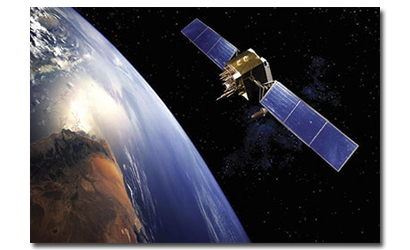|
|
 |
Knowledge Is Key
For Intelligent Decisions
Satellite Logic is a leading,
authoritative source of information in
the Satellite Industry. Located in the
heart of the Silicon Valley, Satellite
Logic provides one of the most
valuable and comprehensive
knowledge bases on the Satellite
market! This is a primary Worldwide
information center which enables our
clients to analyze, evaluate, inquire
and select their best tailored
solutions. Our company sets the
industry standards for targeted
buying leads, reflecting a dramatic
advance over traditional marketing
solutions.
|
|
|
 |

The use of GPS technology for positioning, navigation, and timing has
grown dramatically since the U.S. Government authorized civilian
access to the Global Positioning System in 1983. Thanks to the long-
standing U.S. policy of making GPS freely available to the entire
world, as well as a track record of highly dependable service, GPS
has evolved from a neat gadget into a ubiquitous technology that is
now fundamental to the global information infrastructure.
GPS is a constellation of over 24 U.S. government satellites providing
PNT services to an unlimited number of civilian and military users on
a continuous, worldwide basis. Today, GPS technology is in
everything from cars and airplanes to cell phones and wristwatches.
Businesses use it to boost productivity in industries as diverse as
farming, mining, construction, real estate, taxicab services, package
delivery, and logistical supply chain management. GPS enhances
public safety by preventing transportation accidents and reducing
emergency response times. It helps further scientific aims such as
weather forecasting, earthquake prediction, and environmental
protection.
GPS technology is used worldwide for navigation, asset monitoring,
people tracking, and more. GPS accuracy makes it an incredibly
reliable way to track objects and calculate locations.
With today's GPS technology you can track your kids car anywhere
and also know if they've been speeding or somewhere they weren't
supposed to go. If your kid is driving their own car, you will be able
to know exactly where they are and where they've been and how
fast they went getting there.

GPS technology is used by organizations, companies and people
across the globe. The technology can be used to track anything
from airplane flights to semi-trucks. The captain of a ship at sea no
longer has to look up at the stars to plot a course; the GPS tells
them everything they need to know. A surveyor on the ground can
find property lines in instants with a fraction of the work it once took.
GPS allows the accurate positioning of an object using satellite
signals. There are a lot of applications of this technology in many
scientific fields all over the world. In recent years, the rapid increase
in the development of the geographic information system
technology (GIS) has led to the development of GPS/GIS
applications. Therefore, the geometric and geographic information
obtained by the use of GPS can be introduced to GIS database and
thus thematic maps can be produced.
From its beginnings as space-age technology more than three
decades ago, GPS technology has progressed from electronic novelty
to the point where it's almost an indispensable requirement of daily
life. In the near future GPS will probably be built into almost every
electronic unit we operate. In fact, the future of GPS technology and
its uses is limited only by man's imagination. Today, GPS
technologies can be found in many mobile devices, especially in
mobile phones such as cell phones, PDA’s, and Smartphones, and
car navigation systems. The future of GPS technology will continue
to be used, explored, and developed in years ahead. Every mobile
device will have at least one GPS program in them. Even though
not all people know, use, and take advantage of GPS technology,
the future of GPS programs and applications will become an
important part in peoples’ daily lives.
The use of GPS emergency programs will become very important to
everyone. In today’s society, almost everyone has a cell phone or a
portable communication device. Thanks to GPS technology,
emergency services know exactly where they are and can give time
estimates for arrival. And to go further, people can track and see
visual through their cell phones how far emergency services are
away to provide comfort and safety.
GPS technology will be combined with other technologies to create
new applications. SMS or text messaging will allow cell phone users
to communicate through GPS applications. Cell phone users will have
the option to send a text message to acquire information.
Information can be sent back to the users based on their GPS
location. Also, in the near future mobile devices will probably be
paired to other mobile device through a shared GPS network. When
Verizon commercial says that you can add a phone to your family
shared network, it will also have an option that will allow that main
user to track any other phone that belongs to that mobile phone
number. This would prevent lost or stolen cell phones. When
someone loses their cell phone, no longer will the have to call it
100 times to find its location, now they can simple contact another
shared member and ask to locate their phone.
The future is approaching and the development of GPS technology
is increasing. It is only a matter of time that everything that we
know will have some type of GPS technology in it.
|
|
|
|
